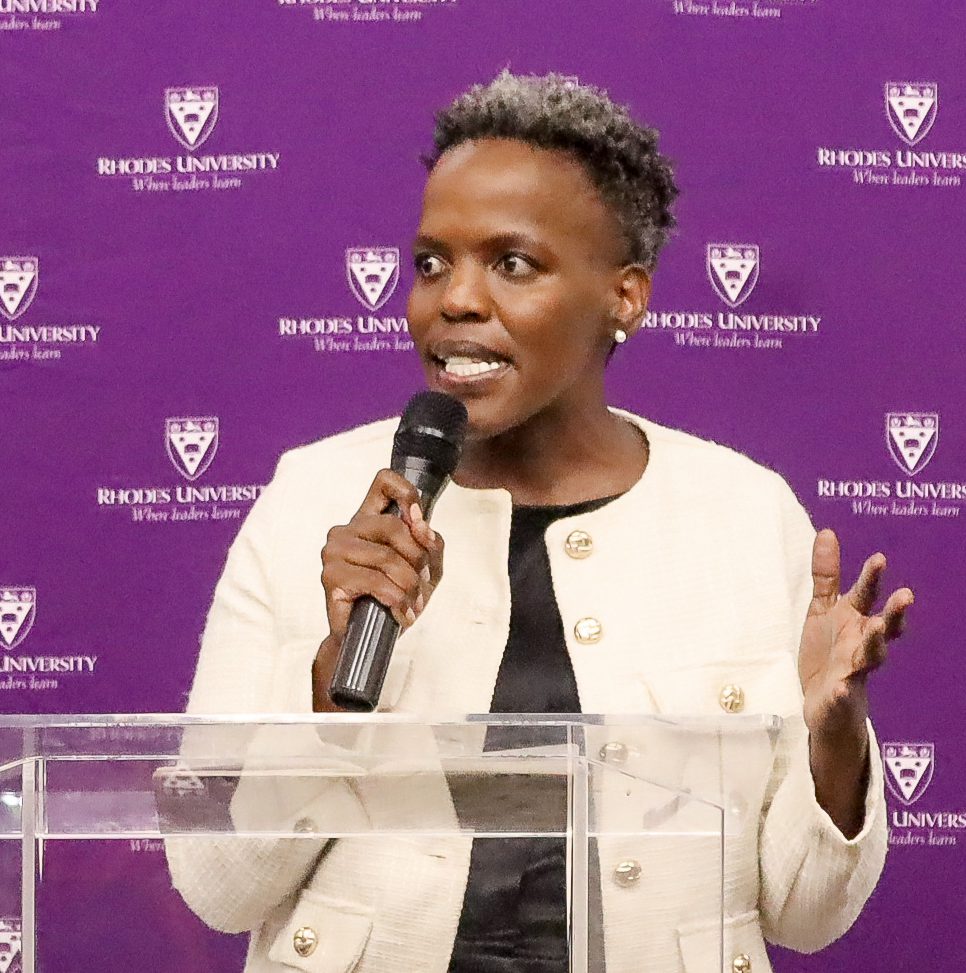
The School of Journalism and Media Studies (JMS) at Rhodes University transformed its second annual academic assembly into a vibrant tribute to storytelling, courage, and the evolving landscape of journalism.
Held on May 9, the assembly brought together students, educators, and media professionals for a dynamic exchange of ideas and inspiration. Headlining the event was an award-winning journalist and Rhodes University alumna, Zikhona Tshona, whose powerful speech left attendees buzzing with a renewed passion for journalism.
Building on the success of last year’s inaugural event, titled “Art of New Beginnings,” which featured seasoned journalist Chriselda Lewis, this year’s assembly continued the school’s mission to inspire future journalists through real-world insights and compelling personal stories. With over 21 years in the field, Lewis captivated audiences in 2024 with gripping accounts covering global crises and reflections on journalism’s global impact.
Opening the 2025 assembly, the Head of the School, Jeanne du Toit, emphasised the purpose behind this annual tradition. “The School of Journalism and Media Studies introduced this series of events to showcase and inspire students using those who have been in practice,” she said.
This year, the spotlight was on Zikhona Tshona — a familiar name in South African journalism with a strong presence at major broadcasters such as eNCA and Newzroom Afrika. She was introduced by Dr Chikezie Uzuegbunam, Deputy Head of School for Teaching and Research at JMS, who praised her as “the storyteller of empathy, one who reports on stories that often go unheard—stories that have gone from being invisible to reaching the ears of the nation.”
Zikhona’s impressive accolades include the 2024 Standard Bank Sivukile Journalism Award and the 2023 National Press Club Journalism Award. Yet, beyond the awards, her deep commitment to social justice, especially for marginalised women, children, and vulnerable communities, stood out most.
“She uses her platform to raise awareness for those often overlooked. Through her journalism, she shows that social justice can be achieved,” said Uzuegbunam.
One of the most moving moments of the day came when Zikhona shared the story of a nine-year-old boy who had been denied access to school simply because he didn’t have a birth certificate. It was only after she brought attention to his story that he could enrol. “That is what journalism can do in people’s lives,” she said — a powerful reminder of journalism’s impact.
Her words sparked a deep emotional response among the students. One fourth-year journalism student shared how, in her village, people no longer see her as just a student or a child, but as a symbol of hope. “They believe that their stories will be told through me,” she said.
Zikhona also spoke on the importance of language and culture in journalism. She highlighted how learning a few words — even just a greeting or a first question — in someone’s language can create connection, ease tension, and build trust during interviews. “I learned greetings and key phrases from YouTube videos,” she said. “It helped me interact better with people from different tribes.”
Her message was clear: storytelling is a powerful tool for change.
Adding to the emotional weight of the event, the Rhodes University Chamber Choir delivered a moving performance, singing songs that honoured Zikhona.
As the 2025 academic assembly came to a close, one thing was evident: Zikhona Tshona’s story — and the stories she tells — are not just changing lives but shaping the next generation of storytellers at Rhodes University.
